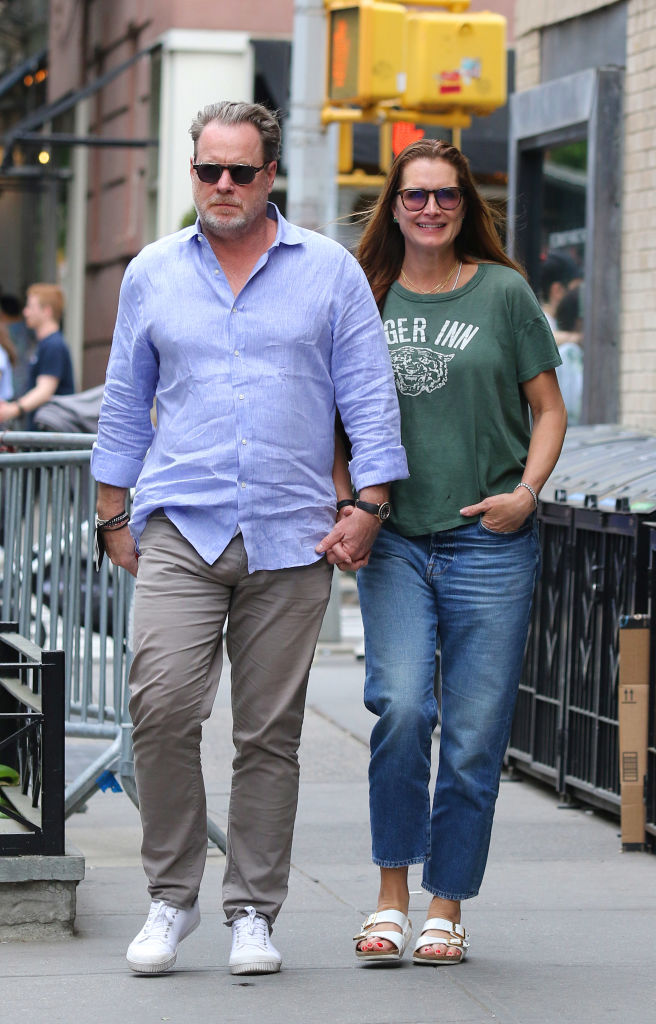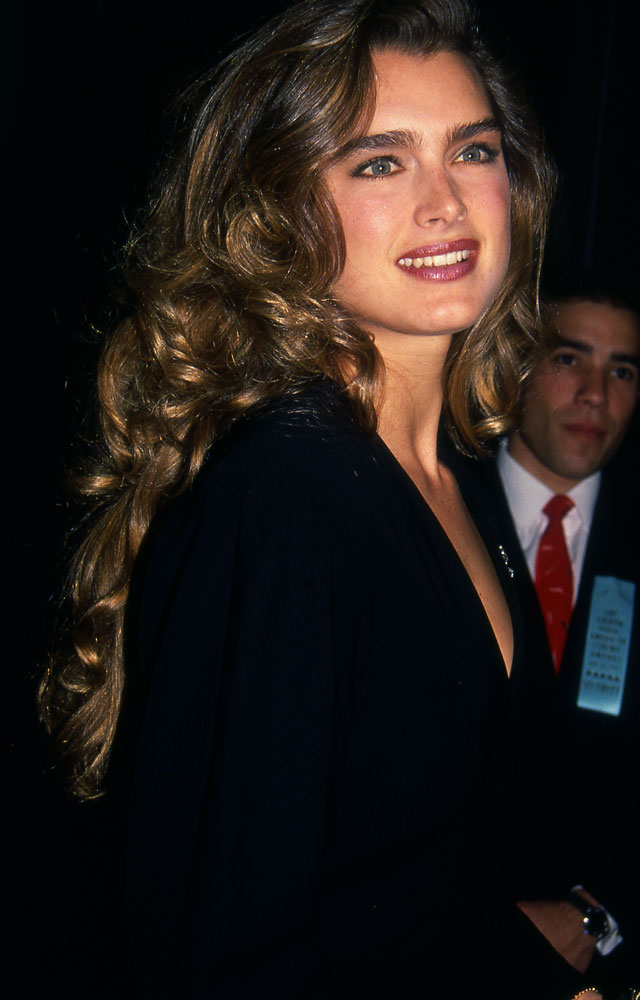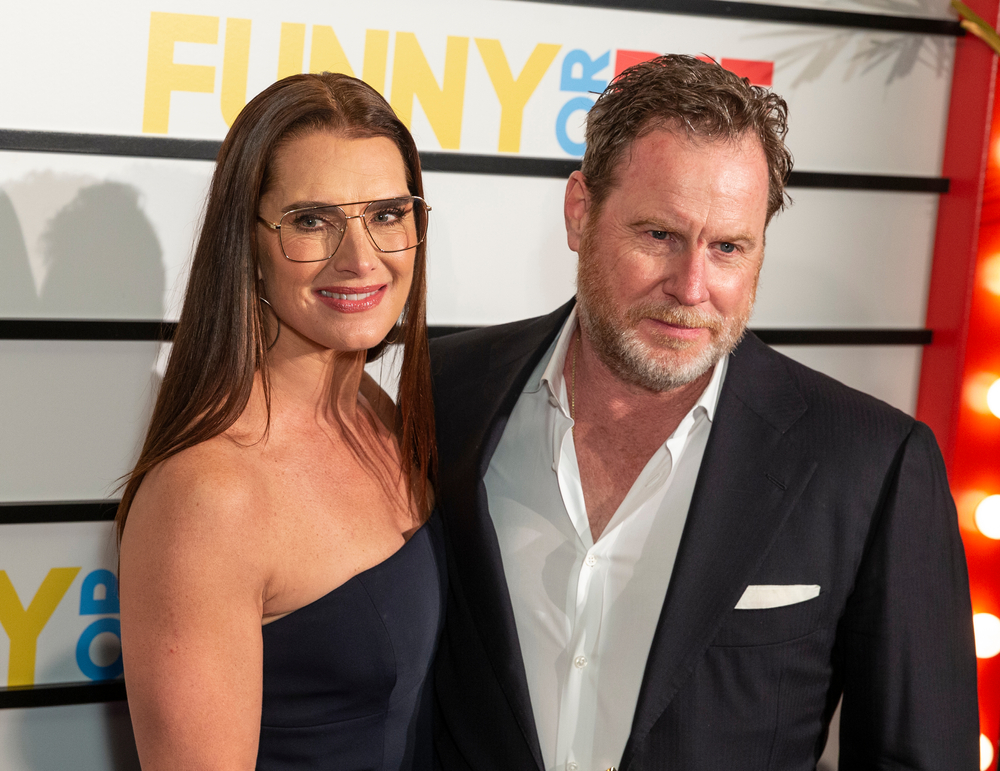Brooke Shields is a renowned actress and supermodel who has been celebrated for her beauty and talent. Yet, despite being seen as one of the most iconic figures in Hollywood, she has faced her share of body-shaming and criticism. In a revealing conversation, Brooke opens up about her journey to self-acceptance, how her husband helped her embrace her body, and how she’s now using her platform to advocate for others.
The Early Struggles with Body Image
Brooke Shields’ career skyrocketed after her iconic Calvin Klein jeans ad in 1980, but the road to confidence wasn’t always smooth. From a young age, Shields faced body-shaming, including harsh criticism from her own mother, who was also her manager. Brooke recalls that her mother’s remarks, such as “Why don’t you move your fat ass?” made her internalize the idea that she had a “fat ass,” something she struggled with for years.
Despite this, Shields rose to stardom and became a global symbol of beauty. But even with her success, she often felt insecure about her appearance, particularly when it came to her body. “I modeled swimwear when I was 15, and even then I didn’t think I had a swimsuit body,” she admits. Her career flourished, but the comments about her “athletic” build and being “not rail-thin” left an impact on her, shaping the way she viewed herself.
A Turning Point: Husband Chris Henchy’s Support
It wasn’t until Brooke married screenwriter Chris Henchy that her perspective on her body began to shift. Chris, who has been with Brooke for many years, played a crucial role in helping her accept her physical appearance. He regularly reassured her, telling her, “I want to grab onto you,” when she would walk away or hide her body. His unwavering support reminded her that she was beautiful just as she was, which helped her overcome the insecurities rooted in her earlier years.
“He really celebrated my womanliness and my body,” Brooke says. “I needed a man to celebrate me.” This affirmation from her husband, along with the confidence he helped her build, allowed Brooke to embrace her body and feel comfortable in her skin for the first time.

Getty Imag
Facing Body-Shaming and Insecurities Head-On
Despite her success, Brooke wasn’t immune to the harsh judgment that many women face in the public eye. The industry’s emphasis on thinness often made her feel as though she didn’t measure up. “I was ‘neck up’ — the face, the eyebrows,” she shares. “I was always described as ‘athletic’; ‘not rail-thin’; ‘not a runway model.’” These descriptions, while not overtly negative, still caused Brooke to feel self-conscious about her body and question her value as a model and actress.
However, as time passed, Brooke began to accept herself and her body. She realized that the messages she had received about beauty were often distorted by society’s narrow standards. Her husband’s encouragement played a significant role in this shift in perspective. Rather than trying to fit into a mold of perfection, Brooke learned to appreciate her unique qualities.

Brooke Shields is perhaps one of the most iconic actresses of her generation. She is considered a great beauty by all her fans. However, now she is opening up about some of the unfair criticism the actress has faced in her life.
Keep reading to learn more about what the actress went through in her life…
Brooke Shields is one of the world’s most successful supermodels. She has made a name for herself both on the runway and on movie screens because of her immense talent and beauty.
The 57-year-old beauty icon however has had her fair share of detractors who tried to take away from her success. Now the actress is opening up about her relationship with her mother Teri who was her manager since Shields had been a child.
Her mother was her first critic. The actress recalls, “My mother would get drunk and say: ‘Why don’t you move your fat ass?’ So, I’ve always believed I had a fat ass.” She experienced body-shaming from her own mother which skewed how she viewed herself.
In 2012, her mother passed away after a lifelong battle with alcoholism. But her remarks about Shields left an impact on the actress that was hard to shake. It took years to repair the damage that was done.
In the end, it was her husband of 17 years Chris Henchy, a screen-writer who made the actress accept her body for what it was and made her see her own beauty.
She shared, “I would walk backwards out of rooms, and he’d say: ‘No, I want to grab onto you,’” Shields said. “He really celebrated my womanliness and my body. And I needed a man to celebrate me.”
She was previously married to Andre Agassi from 1997 to 1999. She broke into Hollywood as a teenage actress but it was her iconic Calvin Klein jeans ad, shot by Richard Avedon in 1980 that made her into the icon she is today.
While the actress was always considered beautiful by the masses, she shares how there would always be criticism about her. She said, “I modeled swimwear when I was 15, and even then I didn’t think I had a swimsuit body.”

“I was a cover girl, not a supermodel. I was ‘neck up’ — the face, the eyebrows — and I was always described as ‘athletic’; ‘not rail-thin’; ‘not a runway model.’ Those messages, they seep into your consciousness,” the actress finished.
A few years ago, she did another swimsuit campaign and teamed up with Calvin Klein for a campaign yet again. She said she dedicated to the role and made sure she looked her best.
“I knew that if I didn’t look my best, I’d be embarrassed and mad at myself. I stopped drinking beer and wine, and I worked out three times a week. I was the best version of myself,” she said, adding, “I was also hungry.”
It is so surprising to see that even a greaty beauty like Brooke Shields was no stranger to insecurities. While the world considered her beautiful, her own mother and other detractors tried to make her feel less than.

Brooke Shields’ Modern Campaign for Self-Love and Advocacy
In addition to her role as a successful actress, Brooke has used her platform to advocate for others, especially women who have faced body-shaming and criticism. She recently shared her experiences in a documentary, Pretty Baby: Brooke Shields, where she discusses not only the body-shaming but also her struggle with sexual assault during her early career. She hopes that by sharing her story, she can help others feel less alone in their struggles and inspire them to embrace their bodies, no matter what society may say.
“Everybody processes their own trauma on a different timeline,” she explains. “I want to be an advocate for women to be able to speak their truth.” This message of empowerment is a natural extension of her own journey toward self-acceptance, and she now hopes to inspire others to do the same.
Body Image in Hollywood: A Complex Journey
Brooke’s journey to self-love has been far from easy, and it highlights a much larger issue in Hollywood: the industry’s obsession with youth and beauty. Ageism and body-shaming are rampant, with many actresses struggling to find meaningful roles as they age. Brooke’s experience, however, proves that a woman’s value is not defined by her appearance. “I’ve had a good education in Hollywood ups and downs very quickly. I was in a big hit and then several lows. But it all helped me in my quest to detach,” she reflects.
 Shutterstock
Shutterstock
Her openness about her struggles with body image and self-esteem is a powerful reminder that even the most beautiful and successful people face their own insecurities. By sharing her story, Brooke is helping to break the stigma surrounding body image issues and encouraging others to embrace who they are, flaws and all.
Read More About Empowering Stories:
- Pope Francis Heartbreaking Final Gesture to His Nurse Before Death
- Pope Francis Describes Death as a New Beginning Before His Passing
Conclusion
Brooke Shields’ story is a powerful example of how self-love and support from loved ones can transform one’s relationship with their body. Her journey to self-acceptance is not only inspiring but also serves as a reminder that beauty is not defined by societal standards. Instead, true beauty comes from within, and it is essential for everyone to embrace who they are, regardless of external pressures. Through her advocacy, Brooke is helping others find confidence and embrace their own unique beauty.



